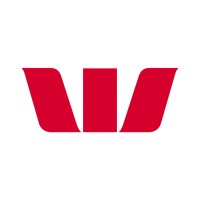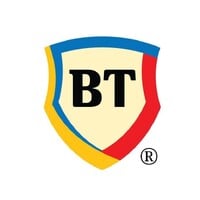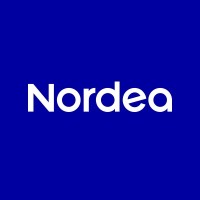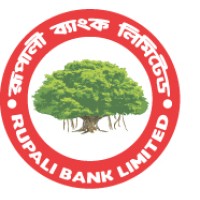Company Cyber Security Posture
NANA
NA Company Details
NA
NA
NA
NA
NA
NA
Scan still pending
NA
NA
Between 200 and 800
This score is AI-generated and less favored by cyber insurers, who prefer the TPRM score.
 NA Global Score
NA Global Score.png)

Company Scoring based on AI Models
| Model Name | Date | Description | Current Score Difference | Score |
|---|---|---|---|---|
| AVERAGE-Industry | 03-12-2025 | This score represents the average cybersecurity rating of companies already scanned within the same industry. It provides a benchmark to compare an individual company's security posture against its industry peers. | N/A | Between 200 and 800 |
Company Cyber Security News & History
| Entity | Type | Severity | Impact | Seen | Url ID | Details | View |
|---|
Company Subsidiaries

NA
Access Data Using Our API

Get company history
.png)
NA Cyber Security News
Top Cybersecurity Employers in Colombia: Who's Hiring and What They Look For
Discover top cybersecurity employers in Colombia, who's hiring, key job qualifications, and career growth opportunities for beginners in ...
Bancolombia’s Nequi first in Colombia to deploy mobile biometrics
Nequi, a financial mobile banking service from Bancolombia, has become the first in Colombia to deploy mobile biometrics for authentication. The technology – ...
Bancolombia Appoints New Board Leadership and Committees
Bancolombia demonstrates strong financial performance with robust revenue and profit growth, a positive technical outlook, and attractive ...
Bancolombia turns to SunTec for enterprise pricing solution
SunTec Business Solutions, a relationship-based pricing and billing software specialist, has landed Colombia's largest bank, Bancolombia, as a taker of its ...
Colombia Cybersecurity Job Market: Trends and Growth Areas for 2024
Explore the cybersecurity job market in Colombia for 2024. Learn about trends, growth areas, and top skills in demand for beginners.
PRESS RELEASE: Global Finance Names The World’s Best Digital Banks 2024
Global Finance has selected the World's Best Global and Regional Corporate/Institutional Digital Banks and Consumer Digital Banks as part of ...
Top In-Demand CyberSecurity Jobs for Beginners in Colombia
The demand for entry-level cybersecurity jobs in Colombia is surging due to rising cyber threats. Key roles include Security Analysts, ...
Outstanding Colombian startups: Fintech, Cybersecurity, Agritech, Healthtech
Colombia is rising as a powerhouse in Industry 4.0 thanks to technological advancements, a supportive entrepreneurial ecosystem, and a growing ...

NA Similar Companies

Maybank
Maybank Group is the leading financial services provider in Malaysia catering to the needs of consumers, investors, entrepreneurs, non-profit organisations and corporations. The Group, which has expanded internationally, has the largest network among Malaysian banks of over 2,400 branches and office

Westpac
From rescue helicopters and signing the Equator Principles, to paying super during parental leave and initiatives like Westpac SaferPay and SafeCall to protect customers from scams... we have a proud history of stepping up to be first for our customers, communities and people. We are Australia’s old

Banca Transilvania
Bun gasit. Noi suntem banca oamenilor intreprinzatori. 💛 Sau mai bine spus, compania care isi doreste ca lucrurile sa fie facute, ideile valorificate, iar visele implinite, sustinand oamenii care au curajul sa faca lucrurile putin mai diferit. Multi cred ca bankingul e doar despre bani, credite si

Nordea
We are a universal bank with a 200-year history of supporting and growing the Nordic economies – enabling dreams and aspirations for a greater good. Every day, we work to support our customers’ financial development, delivering best-in-class omnichannel customer experiences and driving sustainable c

Rupali Bank Limited
Rupali Bank (Bengali: রূপালী ব্যাংক) is a commercial bank in Bangladesh. It was established as a nationalised bank in 1972 under the Bangladesh Banks Nationalisation Order, through the amalgamation of the branches of Muslim Commercial Bank, Australasia Bank and Standard Bank that were operating in E

Evergrowing Bank
Evergrowing Banking was established on 2003 after joint-stock system reform, now it has grown to a famous national joint-stock bank. The heaquarter of the bank is in city of Yantai, Shandong Province, with 11 tier-one branches in Qingdao, Jinan, Hangzhou, Chengdu, Chongqing, Yantai, Fuzhou, Kunming

Frequently Asked Questions
Explore insights on cybersecurity incidents, risk posture, and Rankiteo's assessments.
NA CyberSecurity History Information
How many cyber incidents has NA faced?
Total Incidents: According to Rankiteo, NA has faced 0 incidents in the past.
What types of cybersecurity incidents have occurred at NA?
Incident Types: The types of cybersecurity incidents that have occurred include .
Additional Questions
What Do We Measure?
















Every week, Rankiteo analyzes billions of signals to give organizations a sharper, faster view of emerging risks. With deeper, more actionable intelligence at their fingertips, security teams can outpace threat actors, respond instantly to Zero-Day attacks, and dramatically shrink their risk exposure window.
These are some of the factors we use to calculate the overall score:
Identify exposed access points, detect misconfigured SSL certificates, and uncover vulnerabilities across the network infrastructure.
Gain visibility into the software components used within an organization to detect vulnerabilities, manage risk, and ensure supply chain security.
Monitor and manage all IT assets and their configurations to ensure accurate, real-time visibility across the company's technology environment.
Leverage real-time insights on active threats, malware campaigns, and emerging vulnerabilities to proactively defend against evolving cyberattacks.




